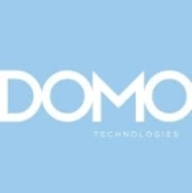

Domo and Splunk Cloud Platform are both key players in the data management and visualization space, with Domo standing out for its ease of use and Splunk excelling in real-time monitoring. Depending on the focus, Domo offers a more accessible platform while Splunk provides more robust security analytics.
Features: Domo is valued for its user-friendly interface, extensive third-party connectors, and efficient Magic ETL for transforming data. It's designed to enable users without technical expertise to handle data efficiently. Splunk Cloud Platform is known for its powerful real-time monitoring and search features, which are essential for enterprises focusing on security and operational analytics. Its enterprise security features and integration abilities make it suitable for complex monitoring requirements.
Room for Improvement: Domo could benefit from enhanced visualization customization, better technical support, and improved performance with large datasets. It also has fewer sophisticated charting options compared to competitors. Splunk users often encounter high costs and complexities with large data volumes. They seek improvements in administrative ease, user interface customization, and clearer documentation. Both platforms require better customer support and customization options.
Ease of Deployment and Customer Service: Domo offers flexible deployment options including on-premises, cloud, and hybrid environments, although post-deployment support can be inconsistent. Some users praise its responsive customer service, while others note delays. Splunk Cloud Platform is primarily cloud-based with some hybrid capabilities, noted for its easy deployment. However, customer service reviews are mixed, with some users reporting slow communication and resolution times.
Pricing and ROI: Domo is perceived as expensive but valuable for companies that can utilize its features, offering substantial ROI through improved efficiencies and data-driven decisions. Smaller entities might find its costs prohibitive. Splunk Cloud Platform is cited as costly, with expenses tied to data usage. Despite this, its comprehensive features justify the price for larger enterprises. Both platforms pose financial challenges but can yield significant ROI when effectively utilized.
If you're actually using Domo at a very limited case and you're being charged $20,000, we've seen ROI there, but once it goes really high, you really need to check your metrics and check your profit.
Splunk Cloud Platform has impacted operational costs; it's a bit expensive, but it provides value for money.
They were quite professional and in around three to five working days, they had identified where they suspected there was an issue and I was able to fix it.
It's very easy to get technical support from Domo.
Support-wise, they are good.
Premium support is costly and may not always provide a satisfactory experience.
The fact that you're able to easily identify the pipelines or flows that have errors, and it notifies you when you're building a pipeline where you can run previews and tell where to fix issues, is helpful.
When fetching files larger than 100 MB from SFTP or any other portal, Domo becomes slow due to the heavy file size.
Sigma, which is written for Snowflake, scales more easily than Domo.
In recent years, I haven't had such cases. It's quite stable and I don't have any reservations on its stability.
In terms of overall stability of the platform, it's very stable.
During that time, we faced issues from the project side as Domo was not visible in our portal.
End users require a license to run their own reports and dashboards, which are fairly expensive.
Some technical aspects such as Beast Mode calculation could be improved in Domo, as it would provide more clarity and help in giving insights to clients or customer business team requirements.
One of the areas where we've had frustrations with Domo is the aesthetics. The aesthetics are quite limited compared to other BI tools such as Tableau and Power BI.
Splunk Cloud Platform needs improvement in its security offerings, specifically in cybersecurity.
Integration is a bit difficult due to the coding required for the integrations.
Domo's pricing is high compared to other BI tools, and it is costly.
For long-time users, it can become expensive, but the trade-off is access to the entire platform instead of licensing different components separately.
They quoted approximately one dollar per KB.
Splunk Cloud is considered too expensive, with its two product offerings both being costly.
If I were to rate the price for the product from 1 to 10, I would rate it nine.
App Studio is valuable because it allows all the customization we needed; we can decode it, with the view and grid which are all I need, drill-downs, and everything can be done the way I need it.
I have been using it for four years and have been able to extract the information I need from it.
The most valuable feature of Domo is the fact that you can connect multiple inputs and you don't have to have a data warehouse.
The most valuable feature of Splunk Cloud Platform is its robustness and ability to ingest logs.
The real-time search capability of this product enhances operational decision-making.
| Product | Market Share (%) |
|---|---|
| Splunk Cloud Platform | 1.2% |
| Domo | 7.9% |
| Other | 90.9% |


| Company Size | Count |
|---|---|
| Small Business | 16 |
| Midsize Enterprise | 11 |
| Large Enterprise | 20 |
| Company Size | Count |
|---|---|
| Small Business | 11 |
| Midsize Enterprise | 6 |
| Large Enterprise | 42 |
Domo is a cloud-based, mobile-first BI platform that helps companies drive more value from their data by helping organizations better integrate, interpret and use data to drive timely decision making and action across the business. The Domo platform enhances existing data warehouse and BI tools and allows users to build custom apps, automate data pipelines, and make data science accessible for anyone through automated insights that can be shared with internal or external stakeholders.
Find more information on The Business Cloud Here.
Splunk Cloud Platform enhances operational efficiency with streamlined log management and real-time data analysis, offering customizable dashboards, seamless system integration, and a user-friendly interface that simplifies infrastructure management.
Splunk Cloud Platform stands out for its robust indexing and powerful search capabilities, delivering end-to-end visibility across environments. AI-driven security measures enhance cybersecurity intelligence, while its flexible log management reduces resolution times. The platform integrates effortlessly with diverse systems, supporting centralized log management, security monitoring, and application performance analysis. Users leverage its comprehensive analytics for troubleshooting, alerting, and visualization, optimizing costs and ensuring compliance with unified data sources.
What are the key features of Splunk Cloud Platform?In many industries, Splunk Cloud Platform is implemented primarily for unified log management, cybersecurity initiatives, and application performance monitoring. Businesses utilize it to streamline IT operations, integrate data sources, and leverage insights for troubleshooting and strategic decision-making, ensuring compliance and optimized resource use.
We monitor all Data Visualization reviews to prevent fraudulent reviews and keep review quality high. We do not post reviews by company employees or direct competitors. We validate each review for authenticity via cross-reference with LinkedIn, and personal follow-up with the reviewer when necessary.